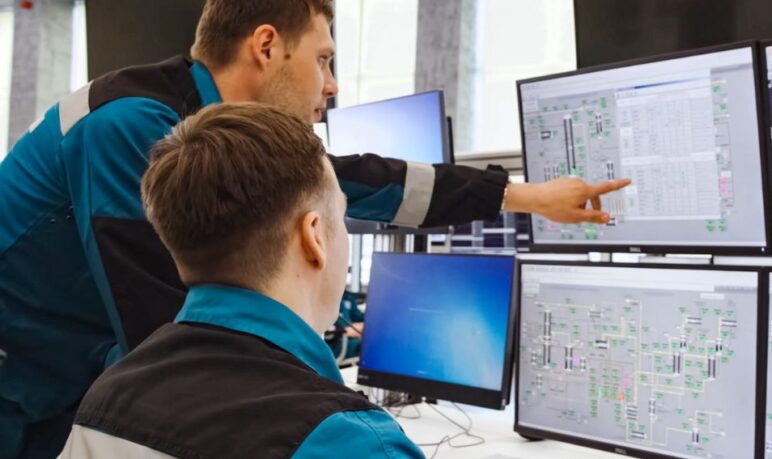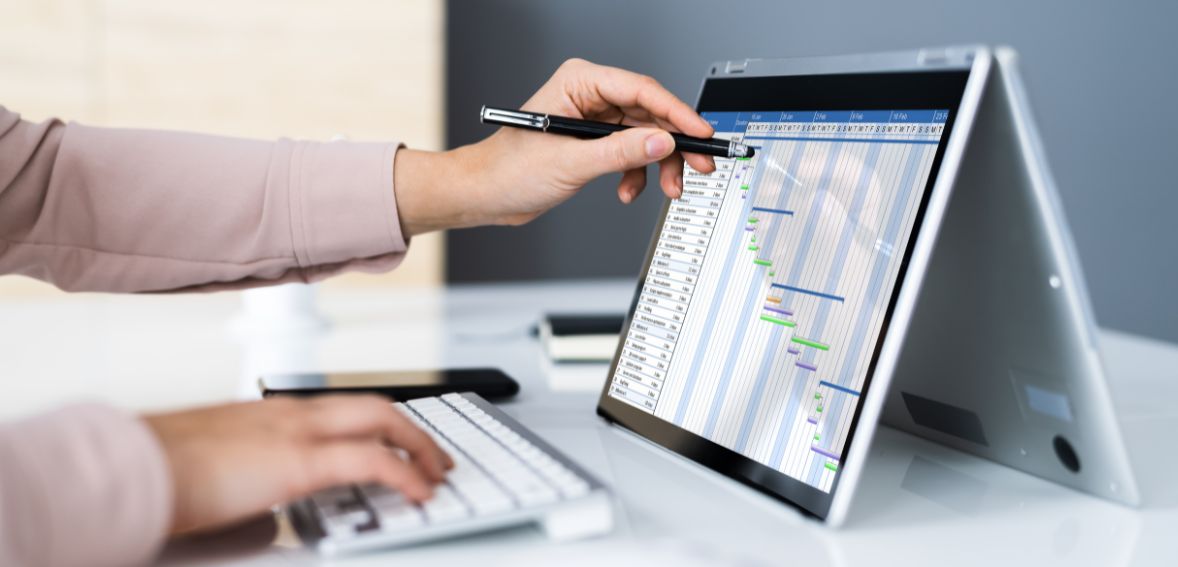
by Inez Kim July 12, 2024
Efficient management is key to success in hotel property management. Property Management Software for Hotels is crucial for streamlining complex tasks such as reservations, guest services, and billing, enhancing operational efficiency and guest satisfaction. This introduction explores how such software simplifies daily operations and integrates seamlessly with existing hotel systems, highlighting its essential role in modern hospitality management. By delving into its comprehensive features and benefits, we’ll see how property management software for hotels transforms the industry, making it more efficient and responsive to guest needs.
In This Article
ToggleWhat is a Property Management System?
A Property Management System (PMS) is an essential software tool designed to manage the myriad tasks of running a hotel or other lodging facility. These comprehensive systems streamline operations by handling everything from guest bookings and front-desk operations to maintenance schedules and billing. The capabilities of a PMS extend across various domains, such as reservations management, channel management, housekeeping schedules, rate and occupancy monitoring, and payment processing. By integrating these various aspects, a PMS ensures seamless operational workflow, enhancing both efficiency and customer service in hospitality settings.
Comprehensive Features of Property Management Software For Hotels

Front-Desk Operations
The front-desk module of Property Management Software for Hotels is designed to facilitate efficient guest interactions and streamline daily administrative tasks. This feature manages critical operations such as guest check-in and check-out, room assignments, and handling guest inquiries and requests. By automating these processes, the software ensures that guest arrivals and departures are swift and smooth, reducing wait times and improving overall guest satisfaction.
Reservations Management
Reservations management is a core function of property management software, enabling hotels to manage room bookings effectively. This feature handles all aspects of booking management, including tracking room availability, managing reservations across different room types, and maintaining an up-to-date inventory of rooms. It also facilitates easy modifications and cancellations, ensuring that staff and guests can manage bookings with ease and efficiency.
Channel Management
Channel management capabilities within a PMS help hotels maximize their reach and occupancy rates by distributing room inventory across multiple online travel agencies (OTAs) and direct booking platforms. This integration ensures that room availability is updated in real-time across all channels, reducing overbooking risks and enabling hotels to tap into a broader market base.
Housekeeping
The housekeeping module in property management software enhances operational efficiency by automating the coordination of housekeeping tasks. This feature allows for real-time updates of room status, from ‘dirty’ to ‘clean’ to ‘ready for guest,’ and optimizes the workflow by assigning tasks to staff based on current needs and staff availability. Effective management of housekeeping duties ensures that rooms are always guest-ready, enhancing the overall guest experience.
Revenue Management
Advanced revenue management tools are integral to modern property management software, employing dynamic pricing strategies to optimize profitability. This function analyzes market trends, demand forecasts, and occupancy rates to adjust room prices in real time, aiming to attract more bookings at the most profitable rates. Hotels can maximize their revenue potential through strategic price adjustments across seasons and market conditions.
Customer Relationship Management (CRM)
The CRM component of property management software for hotel is crucial in personalizing the guest experience. This feature collects, stores, and analyzes guest data, enabling hotels to tailor their services according to individual preferences and histories. By leveraging this data, hotels can offer personalized recommendations, promotions, and services, significantly enhancing guest satisfaction and loyalty.
Reports and Analytics
Robust reporting and analytics tools are essential for strategic decision-making in hotel management. Property management software for hotels provides comprehensive reports on various aspects of hotel performance, including financial summaries, occupancy rates, and guest feedback. These insights help hotel managers make informed decisions that can lead to improved operational efficiency, enhanced guest experiences, and increased profitability.
Benefits of Implementing Hotel Property Management Systems
Implementing a Property Management System (PMS) offers numerous advantages to hotels, streamlining operations and enhancing the guest experience. Here’s a detailed exploration of the benefits:
Centralized Operations
A centralized hotel property management software consolidates critical data across various departments—such as front desk operations, housekeeping, and maintenance—into a single platform. This integration reduces redundancy and minimizes the risk of errors, ensuring that all staff members have access to consistent and up-to-date information. The unified system enhances internal communication, which is crucial in fast-paced hotel environments, enabling more efficient management of resources and faster response times to guest needs.
Streamlined Workflows
One of the key benefits of implementing a PMS is the automation of routine tasks. The system can handle numerous operational processes automatically, such as booking confirmations, guest check-ins and check-outs, invoicing, and scheduling of housekeeping assignments. By automating these tasks, the PMS frees up hotel staff to focus on more critical aspects of hotel management, particularly those that enhance the guest experience. Additionally, streamlined workflows lead to a reduction in human error and an increase in operational efficiency, contributing to a smoother, more reliable service.
Data Access and Security
Modern PMS solutions are designed to provide secure and convenient access to hotel data across multiple devices, essential for managerial staff making informed decisions on the go. These systems have advanced security features that safeguard sensitive information, such as guest data and financial details, from unauthorized access and potential breaches. With robust data protection measures in place, hoteliers can ensure compliance with data privacy regulations while maintaining the trust of their guests.
Enhanced Guest Experience
By significantly reducing the time staff spend on administrative tasks, a PMS enables hotel employees to devote more attention to guest interactions. This increased focus on service can lead to more personalized guest experiences, as staff are more available to respond to guest requests, resolve issues promptly, and engage in meaningful interactions that enhance guest satisfaction. Ultimately, a PMS not only improves the efficiency of hotel operations but also plays a crucial role in elevating the overall guest experience, which is a key factor in fostering loyalty and encouraging repeat visits.
How to Choose a Property Management System
Choosing the right property management system (PMS) is a critical decision in enhancing a hotel’s operational efficiency. Here are some detailed considerations to keep in mind:
Integration Options
A robust PMS should seamlessly integrate with existing systems and third-party software to ensure smooth operations. It is crucial that the PMS is compatible with Online Travel Agencies (OTAs), Global Distribution Systems (GDSs), and other essential hotel management tools. This integration is pivotal for automating booking processes, updating inventories in real time, and minimizing the risk of overbookings or discrepancies in guest information.
Cloud-Based Solutions
Opting for cloud-based Property Management Software for hotels offers numerous advantages over traditional on-premises systems. These include enhanced accessibility, allowing management and staff to access critical data and operational tools from anywhere. Cloud solutions are scalable, making it easier to adjust resources as your business grows or during peak seasons. Additionally, cloud-based systems offer robust security measures and reduce the need for significant hardware investments, all while providing real-time data that is crucial for making timely decisions.
Ease of Use
The usability of a PMS directly affects staff productivity and satisfaction. A system with a user-friendly interface significantly reduces the learning curve, allowing new staff to become competent more quickly. Look for a PMS that offers intuitive navigation, clear menus, and interactive dashboards. Moreover, comprehensive training resources, such as video tutorials, user manuals, and live webinars, ensure staff can make the most of the system’s features.
Customization
Every hotel has unique operational needs, making customization a key feature in selecting a PMS. A flexible system allows you to tailor functionalities, such as room booking processes, guest communications, and billing operations, to fit your specific requirements. Customizable modules can help streamline operations by adapting the software to better align with your hotel’s service standards and operational strategies.
Customer Support
The importance of dependable customer support cannot be overstated. Choosing a PMS provider known for reliable and responsive support ensures that any technical issues can be addressed promptly, reducing downtime and minimizing disruption to your operations. It is advisable to select a provider that offers 24/7 support with multiple channels of communication, such as phone, email, and live chat.
ROI and Spending
Finally, the financial aspects of the PMS should be considered. Evaluate the initial cost and ongoing expenses such as integration, maintenance, and updates. Assess the potential return on investment by considering factors like time savings for staff, revenue enhancements through better room and rate management, and overall improvements in operational efficiency. A well-chosen PMS should fit your budget and contribute to long-term financial performance improvement.
Future Trends in Hotel Property Management Software
The landscape of hotel property management systems (PMS) is rapidly evolving, driven by significant technological advancements. This transformation promises to enhance the operational efficiency of hotels and enrich the guest experience. Here, we delve into the key trends shaping hotel PMS’s future.
Data Analytics and Enhanced Personalization
One of the most pivotal trends in hotel PMS is the integration of advanced data analytics. By leveraging comprehensive data analysis, hotels can gain deep insights into guest preferences and behavior patterns. This knowledge allows for the creation of highly personalized experiences that not only foster guest loyalty but also drive significant revenue growth. Personalized marketing messages, tailored room settings, and customized service offerings are just a few examples of how data-driven personalization can be applied effectively.
Enhanced Mobility in Operations
The adoption of mobile property management software solutions marks a significant shift towards operational agility and enhanced guest service. These mobile platforms enable hotel staff and guests to interact with the hotel’s services from anywhere within the premises. For staff, this mobility means quicker response times to guest requests and streamlined management processes. For guests, it offers the convenience of services like mobile check-in and check-out, room service ordering, and access to facilities bookings, all from their own devices.
The Rise of Cloud-Based Systems
Cloud-based property management software for hotels is becoming increasingly prevalent. These systems offer numerous advantages over traditional on-premise solutions, including scalability, enhanced accessibility, and access to real-time data. Hotels utilizing cloud-based PMS can benefit from reduced upfront hardware costs and minimal maintenance requirements. Additionally, cloud systems are inherently equipped to handle seamless software updates and integrations, ensuring that the hotel always has access to the latest functionalities.
Automation of Routine Tasks
Looking ahead, hotel PMS is set to automate more routine and time-consuming tasks. This includes automatic updates to room availability, rate adjustments based on demand, and streamlined processes for sending reminder emails and managing invoices. Automation reduces the likelihood of human error and frees up hotel staff to focus on more valuable interactions with guests, thereby improving the overall guest experience.
Integration of AI and Chatbots
Artificial intelligence is transforming hotel PMS by integrating AI-powered chatbots and virtual assistants. These tools can handle a wide range of repetitive tasks, such as answering common guest queries, booking services, and providing information about hotel facilities. The availability of 24/7 customer service via AI enhances guest satisfaction and operational efficiency.
Open API Marketplaces
The future of hotel property management software also includes a greater emphasis on open API marketplaces. These platforms enable seamless integration with various third-party technologies and services, from revenue management tools to customer relationship management systems. Open APIs facilitate the creation of a highly interconnected tech ecosystem within the hotel, enhancing the guest experience through seamless service delivery and operational efficiency.
Conclusion
Property management software for hotels is indispensable in the hospitality industry, significantly enhancing operational efficiency and guest satisfaction. By streamlining operations from front-desk management to revenue optimization, PMS simplifies daily tasks and offers advanced data insights for personalizing guest interactions. As technology evolves, adopting a robust PMS will be crucial for hotels aiming to improve service delivery and stay competitive. Ultimately, investing in high-quality Property management software for hotels sets the foundation for a thriving and efficient hospitality business.
Frequently Asked Questions
A Property Management System (PMS) serves as the backbone of a hotel’s operations, managing various functions like guest bookings, front-desk operations, housekeeping, and financial transactions. Its primary purpose is to streamline these operations, enhance guest service efficiency, and improve the overall management of the hotel’s resources.
A PMS enhances guest satisfaction by reducing wait times during check-in and check-out, ensuring accurate billing, and facilitating quicker responses to guest requests and issues. Additionally, many PMS include CRM functionalities that allow hotels to personalize guest interactions based on previous stays, preferences, and feedback, which significantly enhances the guest experience.
Yes, modern Property Management Systems are designed to integrate seamlessly with other systems such as Online Travel Agencies (OTAs), Global Distribution Systems (GDSs), point-of-sale (POS) systems, and event management software. This integration ensures that data flows smoothly between systems, which reduces errors and enhances operational efficiency.
When selecting a PMS, hotels should consider factors such as ease of use, integration capabilities, cloud-based versus on-premises solutions, customization options, and customer support. Additionally, evaluating the system’s security features, data analytics capabilities, and its ability to scale with the hotel’s growth is crucial. Choosing the right PMS involves assessing both the immediate and long-term needs of the hotel to ensure it supports and enhances operational workflows.

